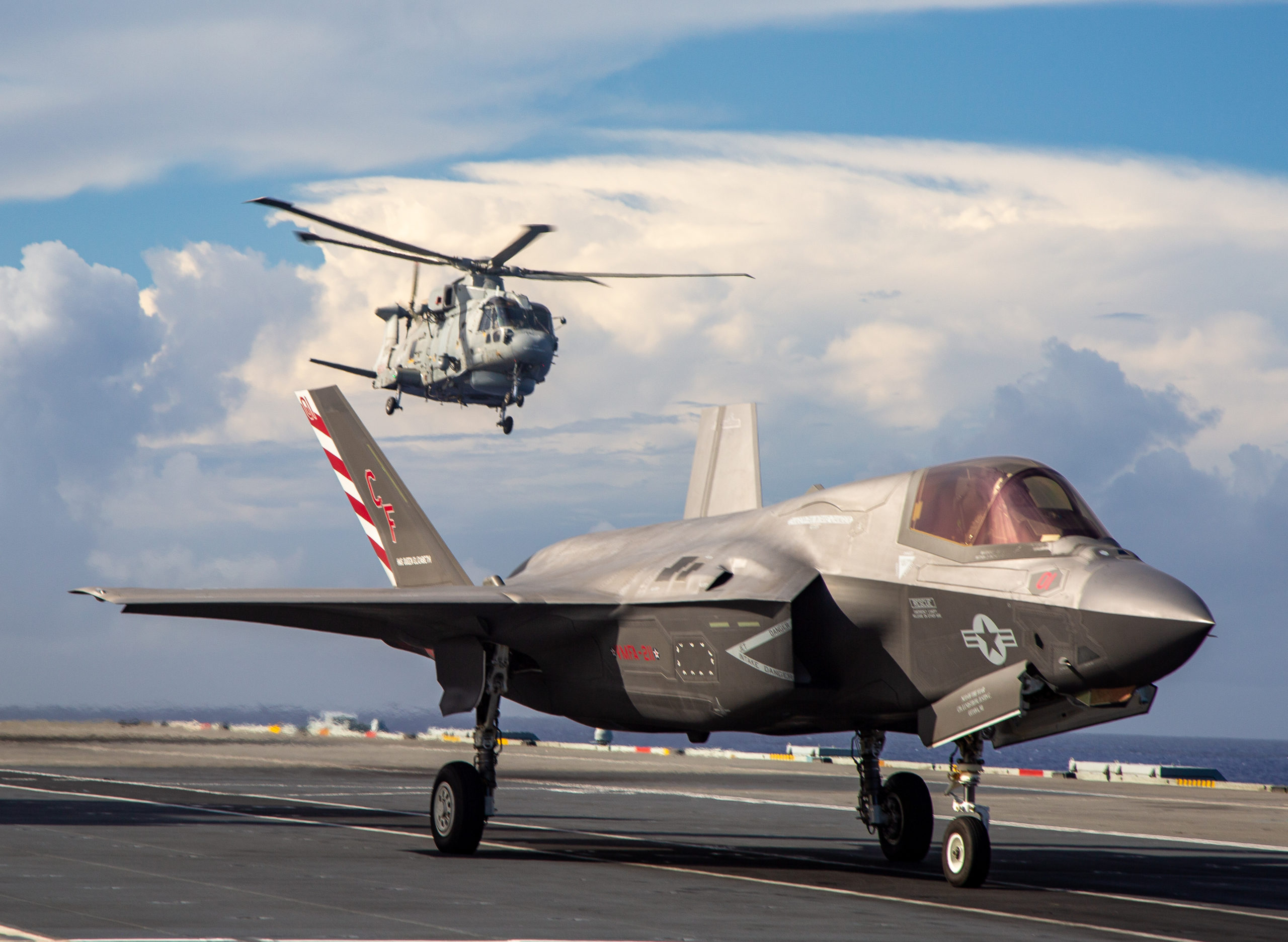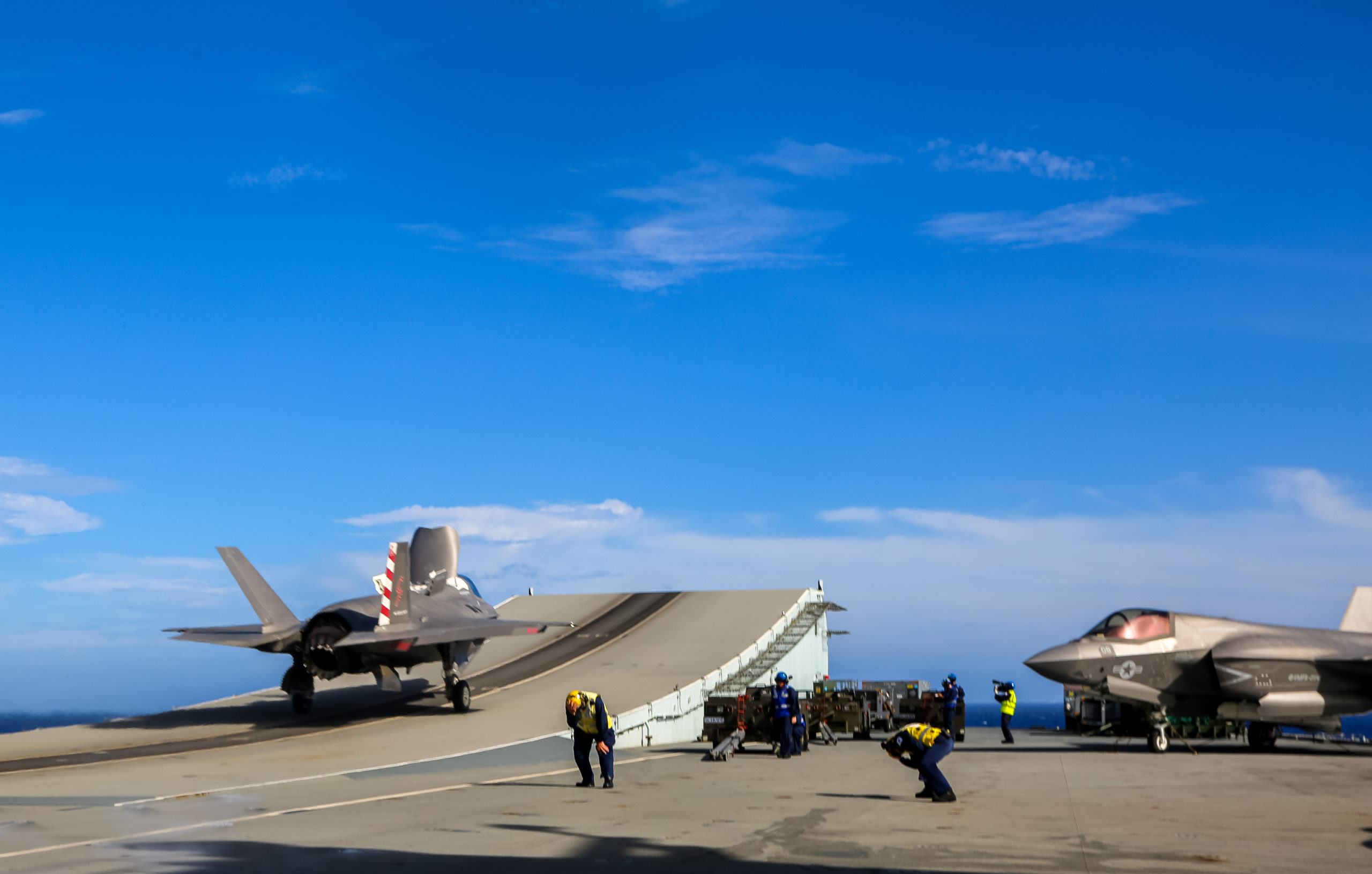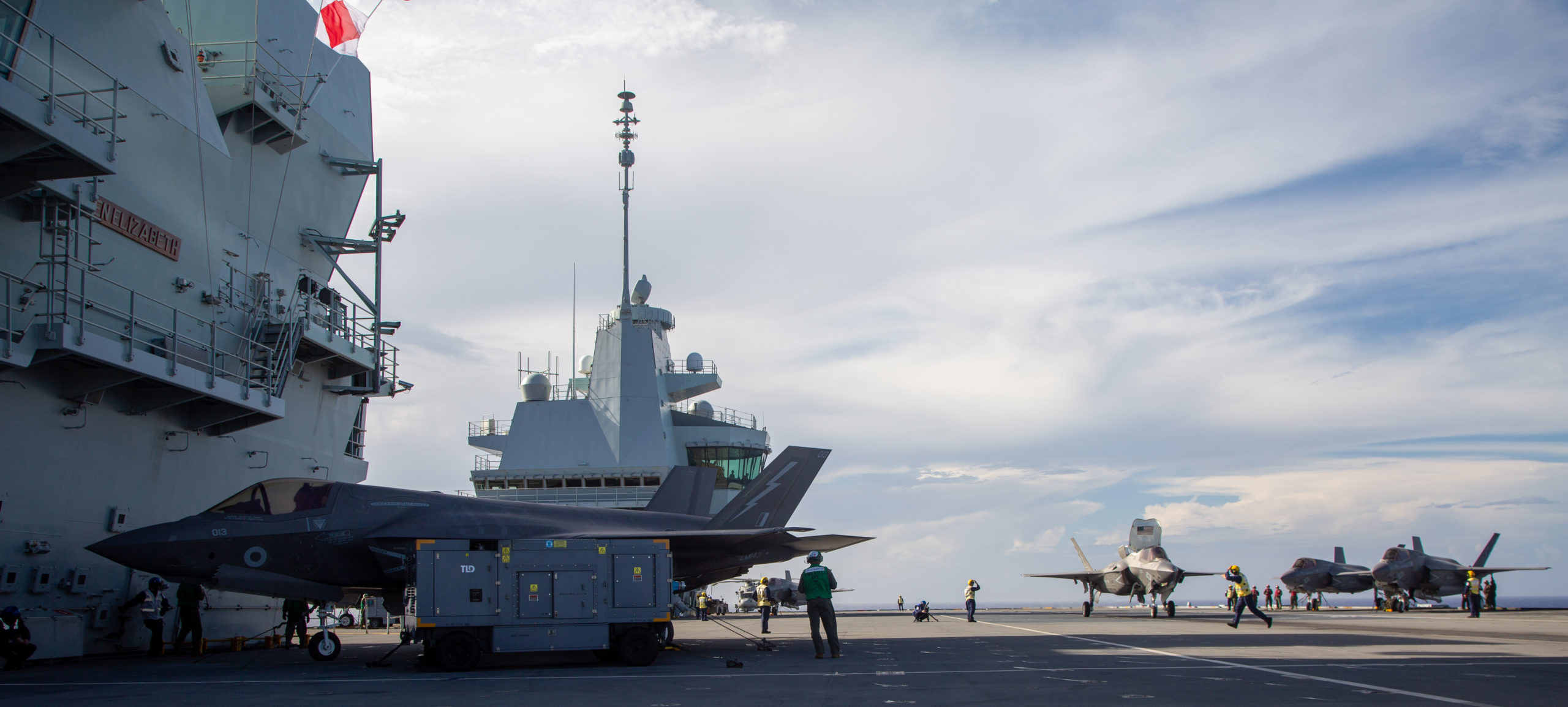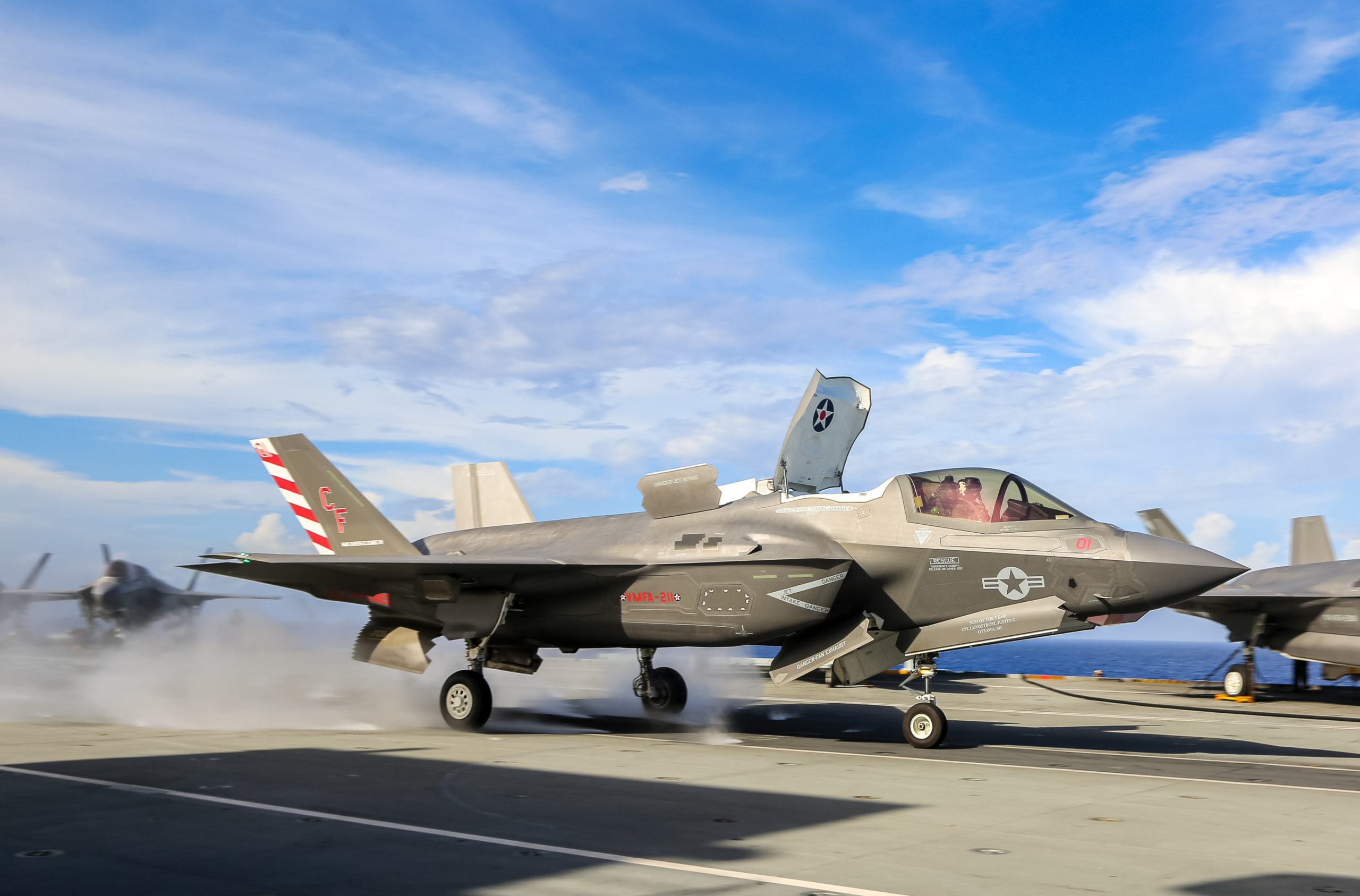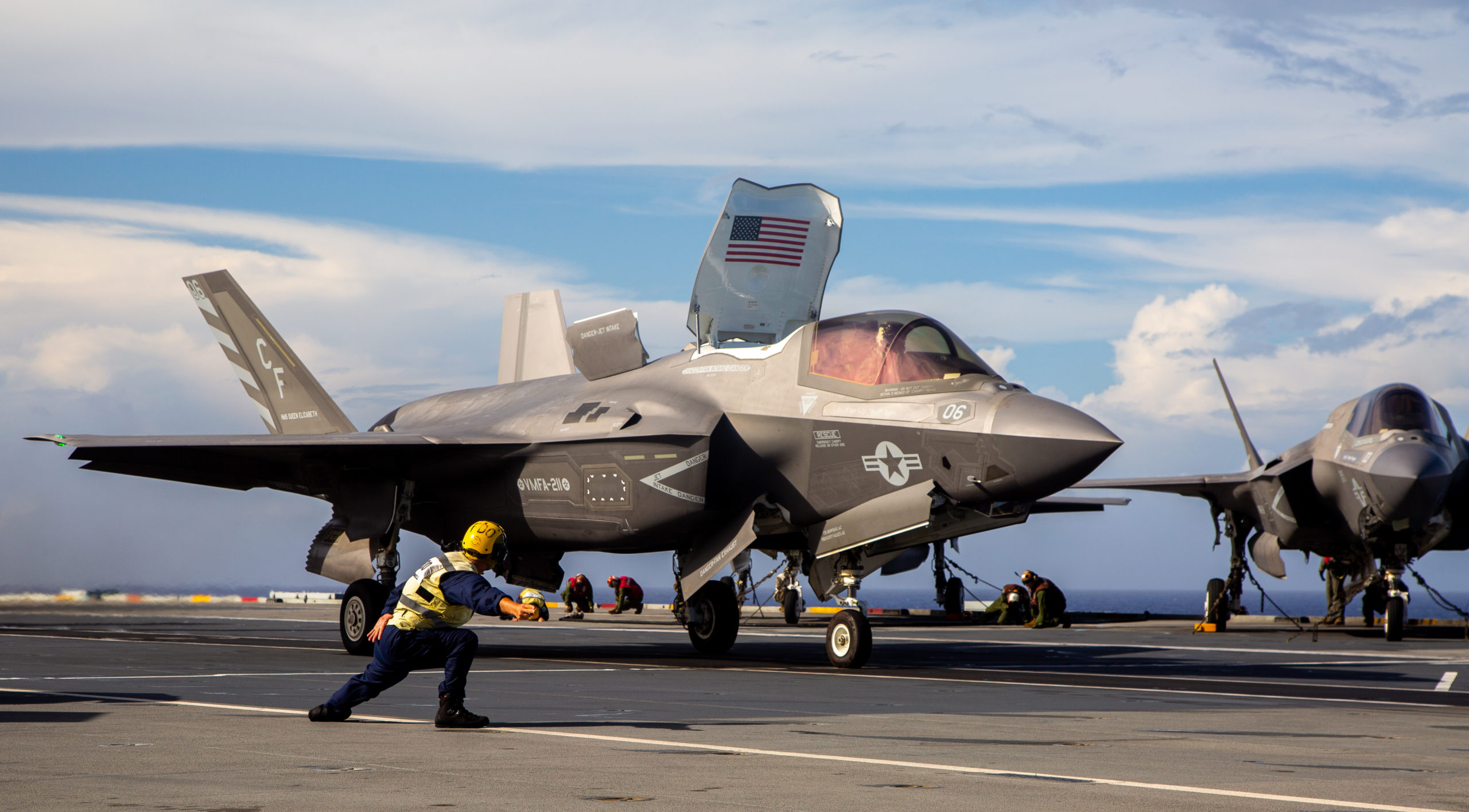According to a story published by 3rd Marine Air Wing on August 20, 2021, VMFA-211 conducted the first cross-deck aviation mission in modern naval history.
Marine Fighter Attack Squadron (VMFA) 211 conducted a first-of-its-kind operation which saw F-35B aircraft launched from HMS Queen Elizabeth land on the amphibious assault ship USS America (LHA 6) to load ordnance, refuel, and strike follow-on objectives on August 20th,2021.
The operation highlighted the interoperability of the F-35B and the strategic importance of the joint integration between the United Kingdom Carrier Strike Group (UK CSG) and the U.S. Navy Amphibious Ready Group / Marine Expeditionary Unit.
This mission was the first time in modern history the United States has cross-decked aircraft for a mission utilizing a foreign aircraft carrier, demonstrating naval partnerships in action.
“The evolution underscored our continued effort to shift away from static, built-up airfields towards distributed maritime operations (DMO),” said Col. Simon Doran, U.S. Senior National Representative to the UK CSG. “Doing so as part of the United Kingdom Carrier Strike Group 21 strengthens our alliances and partnerships through the development of interoperable capabilities, combined operations, theater security cooperation, and capacity-building efforts.”
DMO calls for U.S. Naval forces to operate in a less concentrated and more distributed manner to complicate an adversary’s ability to find, track, and target them while still delivering decisive combat power where needed. The multi-national maritime aviation operation extends the reach of the F-35, enabling the 5th-generation aircraft to effect objectives farther away, for extended amounts of time, and with increased ordnance capacity.
In planning guidance released to the fleet, the Commandant of the Marine Corps highlighted that the Marine Corps is a naval expeditionary force capable of deterring malign behavior and, when necessary, fighting inside our adversaries’ sensors and weapons engagement zone to facilitate sea denial in support of fleet operations and joint-force horizontal escalation.
VMFA-211’s F-35B short take-off and vertical landing aircraft capabilities make them uniquely qualified to support distributed maritime operations, and capable of operating from HMS Queen Elizabeth.
For U.S. Marine Corps Maj. Brian Kimmins, the executive officer of VMFA-211, this mission wasn’t his first-time landing on USS America.
“Having previously deployed on amphibious assault ships while flying the AV-8B Harrier, I looked forward to the opportunity to work with the Marines and Sailors aboard USS America from the cockpit of an F-35B,” said Kimmins. “Being able to demonstrate the interoperable nature of the F-35B amongst partner nation vessels further highlights our flexibility and lethality as a war-fighting organization.”
This phase of the deployment represents a crucial milestone in the development of UK Carrier Strike and our integration with partners in the INDO PACIFIC region.” said Royal Navy CAPT James Blackmore, Carrier Air Wing Commander. “Exercising with a range of allies, including the US and Japan, provides an invaluable opportunity to gain further experience in operating the Lightning F-35B, Merlin and Wildcat helicopters from the Queen Elizabeth Class carriers alongside other nations, which will be key to delivering the Carrier Strike Full Operating Capability by the end of 2023.”
Marine Fighter Attack Squadron 211 and USS The Sullivans, are humbled and proud to continue the special relationship with the United Kingdom through the deployment of Carrier Strike Group 21. Their interoperability with the United Kingdom, The Netherlands, and additional international allies will preserve our collective military advantage and reinforce rules-based international order. The United States and United Kingdom’s forward-deployed forces remain ready to respond to crises globally as a combined maritime force – “we stand together.”


